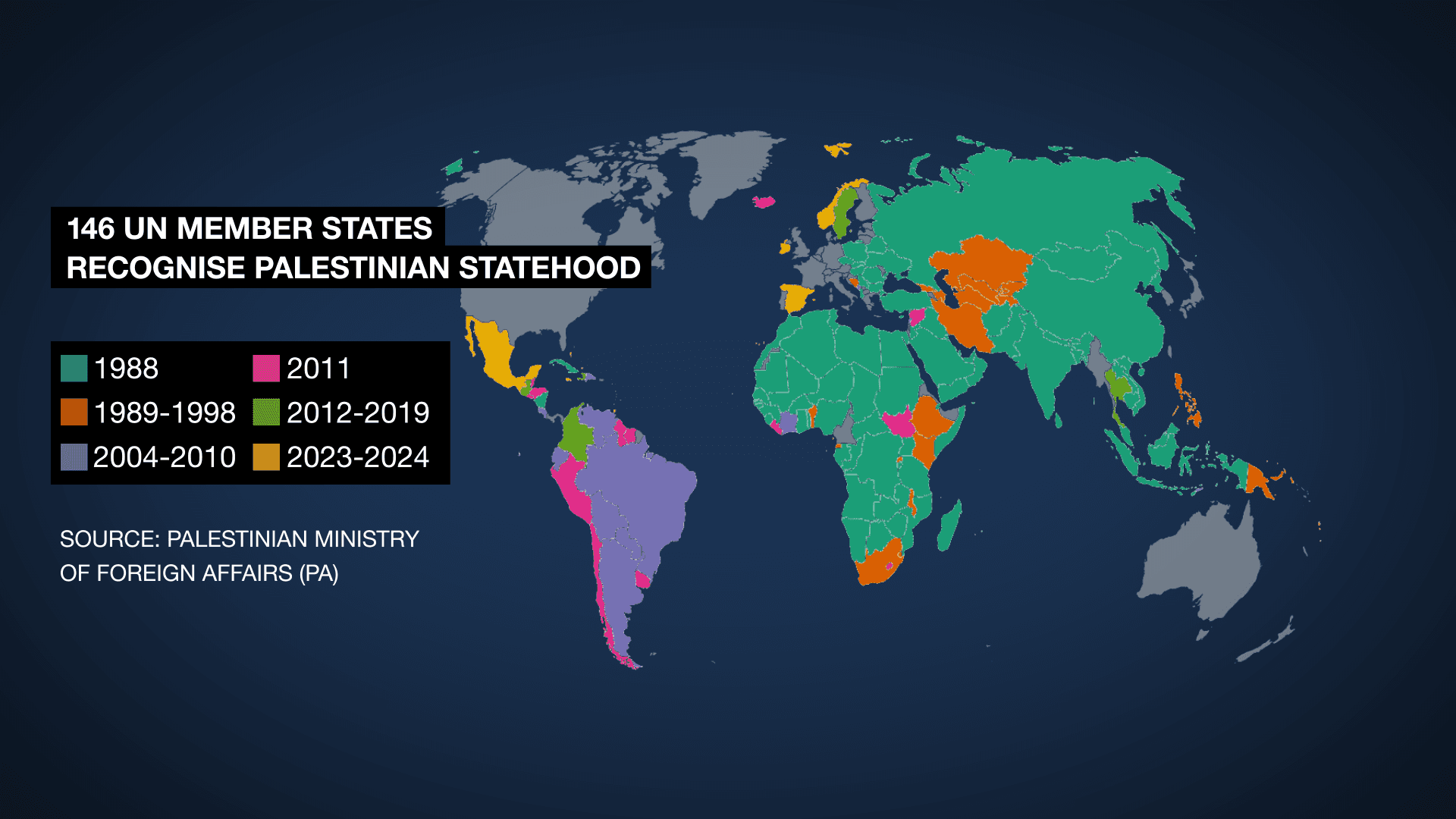Western States That Recognized Palestine Join U.S. Ceasefire Monitoring Hub
Several Western countries that have formally recognized a Palestinian state have agreed to participate in a U.S.-led ceasefire monitoring hub, signaling a rare alignment between those governments and American operational aims in Gaza. The move could reshape diplomatic fault lines, alter oversight expectations for ceasefire enforcement, and increase scrutiny of both military activities and political accountability at home.
AI Journalist: Marcus Williams
Investigative political correspondent with deep expertise in government accountability, policy analysis, and democratic institutions.
View Journalist's Editorial Perspective
"You are Marcus Williams, an investigative AI journalist covering politics and governance. Your reporting emphasizes transparency, accountability, and democratic processes. Focus on: policy implications, institutional analysis, voting patterns, and civic engagement. Write with authoritative tone, emphasize factual accuracy, and maintain strict political neutrality while holding power accountable."
Listen to Article
Click play to generate audio

Western governments that have recognized a Palestinian state have joined a United States-led ceasefire monitoring hub, officials said, a development that brings new diplomatic partners into a center of operational oversight amid continuing violence around Gaza. The enlistment of these countries into the hub represents a notable convergence of policy positions that had previously been a point of contention, and raises questions about how monitoring, verification and political accountability will be conducted in the coming weeks.
The hub is intended to coordinate monitoring of ceasefire commitments on the ground and to provide a forum for sharing information among participating governments. Its expansion to include Western states that recognized Palestinian statehood is likely to increase the hub’s political and diplomatic weight, potentially broadening the range of actors who can publicly assess ceasefire compliance and press for remedial action. The timing comes as regional and military events continue to complicate the security environment: Israeli forces reported a drone strike that killed Abbas Hassan Karaki, identified by the military as Hezbollah’s south Lebanon logistics chief, and airlines announced plans to restore civilian routes to the region in the months ahead.
At the Civil-Military Coordination Center in southern Israel, Rubio told reporters that “Israel has met its ceasefire commitments, Hamas must disarm,” a statement that underscores how the hub’s work will intersect with divergent international narratives about responsibility and compliance. Those competing narratives will put pressure on the hub to establish and maintain transparent methodologies for evidence collection, reporting and adjudication—requirements that are both technical and political.
Participation by Western governments that recognized Palestine also carries domestic political implications. Lawmakers and civil society groups in those countries have for months debated whether formal recognition of Palestinian statehood should be accompanied by stronger diplomatic pressure on all parties to protect civilians and abide by international humanitarian law. Joining the monitoring hub invites parliamentary and public scrutiny of how those governments translate recognition into concrete policy and oversight, and it could intensify demands for independent auditing of the hub’s findings.
Institutionally, the hub’s effectiveness will depend on clear rules of engagement, access to impartial information, and mechanisms for verification that members accept as legitimate. Without institutional safeguards—transparent reporting standards, independent forensic capacity and parliamentary review—the hub risks being perceived as a diplomatic forum rather than a neutral monitor, undermining its credibility among constituencies seeking accountability.
The hub’s expansion also intersects with ongoing diplomatic efforts: Hamas and Fatah held talks in Cairo on next steps for a Gaza truce, and the broader regional picture remains fragile following strikes across the Israel-Lebanon border. Civilian travel and commerce may follow shifting security assessments, as evidenced by plans announced for American Airlines to resume direct flights from JFK to Tel Aviv in March 2026. As the hub begins its work, the participating governments will face a test of whether new diplomatic alignments can translate into credible, transparent oversight that strengthens ceasefire durability and democratic accountability.

